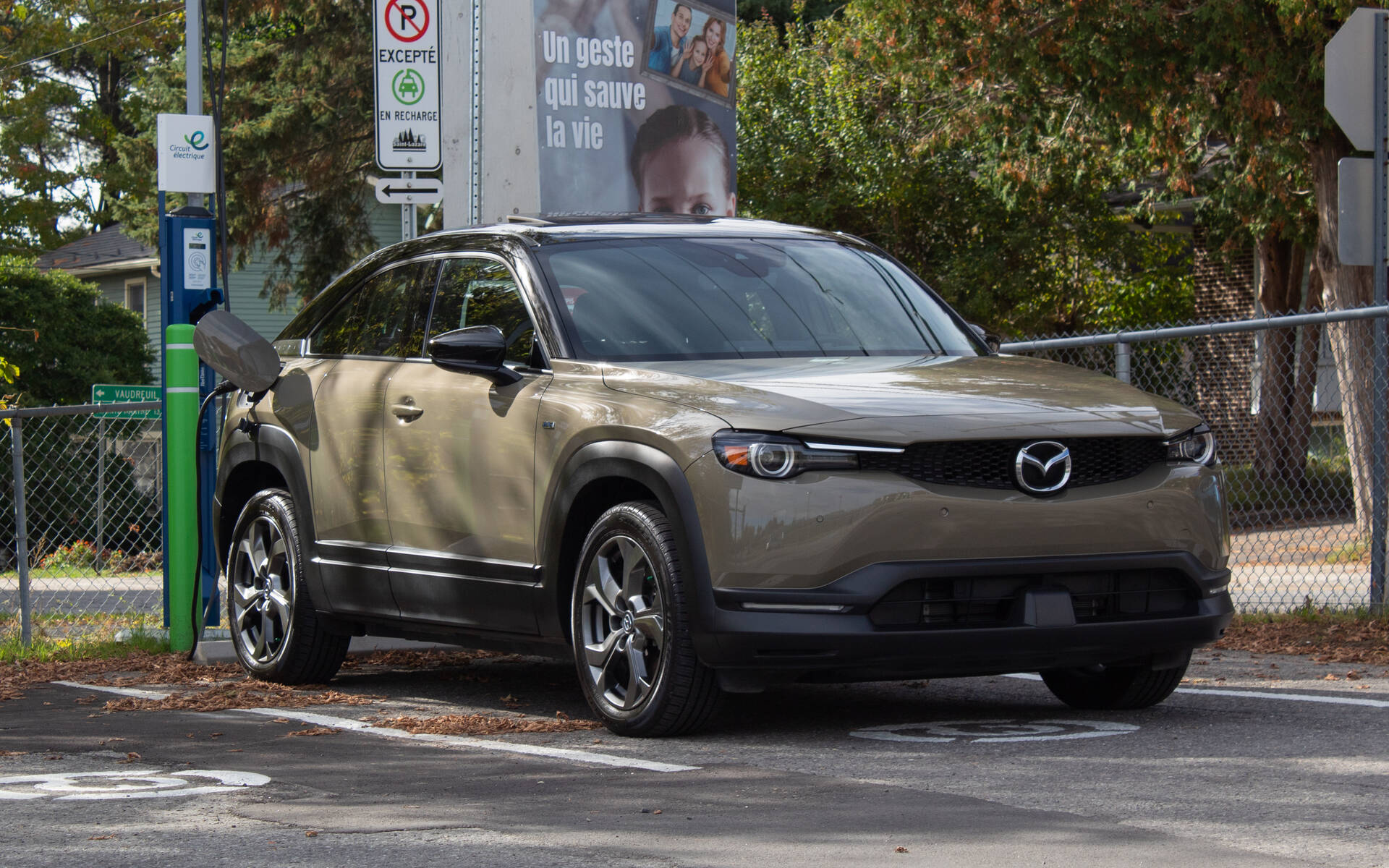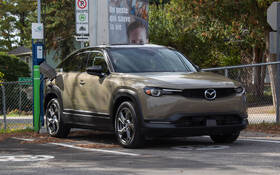Canada's New Electric Vehicle Availability Standard to Improve Access to Cheaper EVs
Canada is taking action to improve the availability of new electric vehicles across the country. At a press conference today, the government announced it has finalized its new Electric Vehicle Availability Standard (EVAS) to increase the supply of clean, zero-emission vehicles available to Canadians across the country.
The EVAS will ensure that Canada can achieve a national target of 100 percent zero-emission vehicle sales by 2035. Interim targets of at least 20 percent of all sales by 2026 and at least 60 percent by 2030 (unchanged from the targets proposed a year ago) will hopefully channel supply to Canadian markets instead of going abroad, reducing customer wait times. It follows similar moves made by California, the European Union and other major economies.
- Also: Ottawa Moves ICE-powered Vehicle Ban to 2035
- Also: ZEV Registrations in Canada Now Topping 12 Percent of All Vehicles
British Columbia and Quebec are two Canadian provinces that already had such standards in place. EVs now account for one in five vehicle sales in both of them.
Automakers and vehicle importers that don't meet the sales targets will face monetary penalties under the Canadian Environmental Protection Act, but the actual cost is unknown at this time. The plan is to track ZEV sales by issuing credits. Those that are in a credit-deficit situation will be able to purchase credits from other automakers.

According to experts, when purchase incentives from the federal government (up to $5,000) and provincial and territorial governments (up to $7,000 in Quebec, for example) are combined with the reduced costs of battery charging and maintenance, many EV models hit a cost parity with gas vehicles within four years, and some in under a year.
While about 80 percent of current EV and PHEV owners choose to charge their vehicles at home, Ottawa has committed to investing $1.2 billion to build 84,500 chargers across Canada by 2029 (there are about 25,000 public chargers right now), which adds on to efforts by businesses and other governments to further expand the charging infrastructure from coast to coast.

What They Said
“Many Canadians are increasingly eager to make the switch to cleaner transportation, since it’s a win-win-win in savings, their heath, and the environment. Putting in place an Electric Vehicle Availability Standard fulfills a major climate commitment from our climate plan. Getting more electric vehicles on the road is another example of how we are taking climate action while helping make life more affordable. And our investments to position Canada as a significant player in the global electric vehicle manufacturing and battery supply chain shows how we are taking advantage of the economic opportunities provided by the emerging low-carbon economy.”
– Steven Guilbeault, Canadian Minister of Environment and Climate Change
“The Federal EV Availability Standard is a win for Canadians. They win by looking forward to more choice, less wait time and better prices. The Canadian economy and the EV ecosystem win because it will ensure EVs built in Canada are available to Canadians. It will also ensure market predictability for Canadian businesses not to mention public and residential charging infrastructure. And, our environment will win – fewer fossil-fueled vehicles on the roads means fewer GHG emissions, cleaner air and better health for Canadians.”
– Daniel Breton, President & CEO of Electric Mobility Canada
"Today is about determining whether or not the government has provided realistic pathways to achieve aggressive ZEV sales targets that automakers will bear the consequences, regardless of whether appropriate infrastructure is built out, purchase incentives are maintained, consumer interest is sustained or external supply chain shocks limit or constrain ZEV production. Our members are fully committed to the decarbonization of their products and support the global consensus of net zero by 2050. However, the current economic and geopolitical headwinds mean that this transition to zero emission vehicles will be both challenging and uneven – with automakers ultimately dealing with the consequences of factors outside of their control."
– David Adams, President and CEO of Global Automakers of Canada











